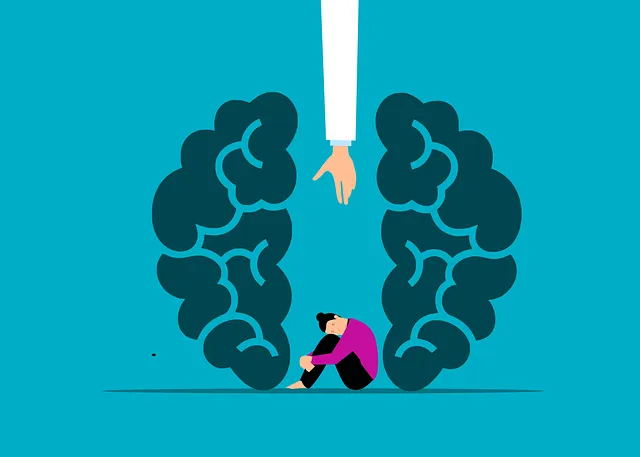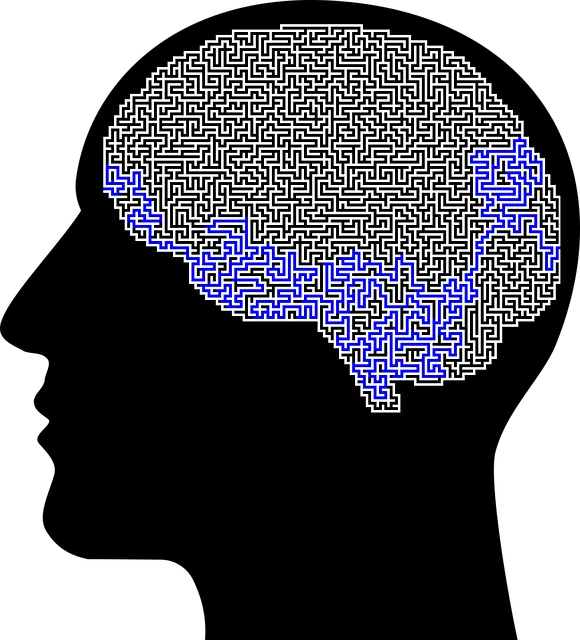Arvada Kaiser Permanente revolutionizes mental health services with a RFM (Reach, Frequency, Money) framework, expanding access and frequency while strategically allocating funds. Initiatives like the Mental Wellness Podcast Series and Self-Care Practices promotion empower individuals to manage their mental health proactively. Resilience-building exercises integrated into care plans enhance patient engagement, outcomes, and overall quality of life by fostering emotional intelligence and self-awareness. Measuring success through surveys, focus groups, and interviews highlights positive impacts on stress levels, job satisfaction, and attendance rates.
“Arvada’s Kaiser Permanente has pioneered innovative mental health services, prioritizing patient resilience. This article delves into the power of RFM (Recovery, Flexibility, and Mastery) exercises as a game-changer in enhancing therapeutic outcomes. We explore how integrating these practices into care plans boosts patient engagement, addressing a crucial aspect of overall well-being.
By examining case studies, we’ll highlight successful implementations at Kaiser Permanente Arvada, offering insights into tracking RFM’s impact on mental health services, with a focus on improving patient lives.”
- Understanding RFM: A Foundation for Resilience
- Kaiser Permanente Arvada: Mental Health Services Overview
- Integrating Resilience Building Exercises into Care Plans
- Enhancing Patient Engagement and Outcomes
- Measuring Success: Tracking RFM Implementation Effects
Understanding RFM: A Foundation for Resilience

At Arvada Kaiser Permanente, mental health services play a pivotal role in fostering resilience and overall well-being. Understanding RFM (Reach, Frequency, and Money) is fundamental to this process. Reach refers to how many individuals are exposed to mental wellness resources, frequency outlines the consistency of these interactions, and money represents the investment in programming and support. By optimizing these factors, the organization can enhance its ability to connect with a diverse range of people seeking mental healthcare.
This strategy forms the bedrock for building resilience, which is the ability to adapt and bounce back from life’s challenges. The Mental Wellness Podcast Series Production, for instance, leverages cultural sensitivity in mental healthcare practice to create engaging content that resonates with various communities. Additionally, promoting Self-Care Practices encourages individuals to take proactive steps towards managing their mental health, strengthening their inherent resilience.
Kaiser Permanente Arvada: Mental Health Services Overview

Arvada Kaiser Permanente offers a comprehensive mental health services overview tailored to meet the unique needs of its community. This healthcare provider recognizes the importance of addressing both physical and mental well-being, especially in a vibrant and diverse city like Arvada. Their dedicated team provides a range of programs aimed at enhancing resilience and promoting emotional healing processes.
One notable aspect is their emphasis on mindfulness meditation as a tool for stress reduction and overall mental health improvement. Additionally, Kaiser Permanente Arvada incorporates effective communication strategies into their therapy sessions, fostering supportive environments where individuals can openly discuss their challenges and work towards personal growth. These initiatives reflect the organization’s commitment to delivering holistic care.
Integrating Resilience Building Exercises into Care Plans

Integrating resilience-building exercises into care plans is a strategic move by Arvada Kaiser Permanente to enhance its mental health services. These exercises focus on empowering individuals with emotional intelligence and self-awareness, crucial components in navigating life’s challenges. By incorporating activities that promote crisis intervention guidance, patients are equipped to handle stressful situations more effectively. This holistic approach ensures that individuals not only manage their current mental health needs but also develop long-lasting coping strategies for future crises.
The implementation of these exercises allows for a personalized care experience tailored to each patient’s unique needs. Through regular practice, patients can build resilience, fostering a sense of control and well-being. This proactive method is in line with the mission of Arvada Kaiser Permanente to provide comprehensive mental health support, ultimately improving the overall quality of life for its clients.
Enhancing Patient Engagement and Outcomes

Implementing resilience-building exercises as part of Arvada Kaiser Permanente’s mental health services has shown remarkable benefits in enhancing patient engagement and outcomes. These structured activities are designed to equip individuals with coping mechanisms, fostering a sense of empowerment and self-efficacy. By integrating these practices into traditional therapy sessions, healthcare providers can create a supportive environment that encourages active participation and promotes positive mental wellness.
The focus on emotional healing processes through exercises like mindfulness meditation and stress management techniques not only improves patient engagement but also leads to better overall outcomes. This personalized approach caters to the unique needs of each individual, fostering a deeper connection between patients and their mental health care. Additionally, the inclusion of public awareness campaigns development can further amplify these efforts by educating the community on the importance of mental wellness, breaking down stigma, and encouraging early intervention.
Measuring Success: Tracking RFM Implementation Effects

Measuring success is a vital step in understanding the impact of RFM (Resilience, Flexibility, and Mindfulness) implementation within organizations, especially in mental health services like those offered by Arvada Kaiser Permanente. By tracking key metrics, professionals can gauge the effectiveness of these exercises on employee well-being and productivity. One effective method is to utilize self-reported surveys that assess changes in stress levels, emotional regulation, and overall job satisfaction before and after the program.
Additionally, qualitative feedback through focus groups or one-on-one interviews can provide valuable insights into employees’ experiences. These strategies, combined with quantitative data analysis, offer a comprehensive view of RFM’s success. For instance, improvements in attendance rates, reduced burnout incidents, and enhanced communication strategies within teams can all be attributed to effective mental health education programs designed to foster resilience.
Implementing resilience-focused exercises, as demonstrated by Arvada Kaiser Permanente’s mental health services, can significantly enhance patient engagement and outcomes. By integrating these practices into care plans, healthcare providers can empower individuals to build mental fortitude, fostering a sense of control and adaptability in the face of challenges. Tracking the effects of this implementation through measured metrics allows for continuous improvement, ensuring that Arvada Kaiser Permanente’s approach remains a powerful tool in improving patient well-being. This strategic adoption of resilience-building techniques has the potential to revolutionize mental health care, benefiting patients across the nation.






